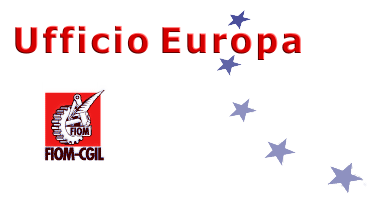|
Italian metalworkers union and Federmeccanica signed the agreement for the renewal of the National contract Reached an agreement for the renewal of the National contract for metalworkers of private sector. The agreement has been reached on the 19th of January after 7 months of negotiations, 48 hours of strikes and in the last week demonstrations, picketing on streets and stations, and the mediation of Ministry of Labour. The agreement has been accepted by the 3 unions bodies representatives and will be discussed and voted by the workers trough assemblies and a ballot at the end of february (25-26-27 february) These are the main chapters. - Industrial relation system. Updated including European directive on information and consultation in companies with at least 50 employees. - Labour market. It is stated that the normal contract is an open ended contract. 44 months maximum for those workers who have been working in the same company with the same functions with a temporary contract and fixed terms contract. After 44 months they will have an open ended contract. - Professional classification. There is a committee which task is to prepare a new professional classification strarting from the unions proposal. If by 1st march 2009 there will be no agreement the actual professional level 5super (till now only for white collars) will be transformed in a new pay element also for blue collars. A new pay element is stated between the 3rd and 4th level named 3 super (pay element). - New scheme of equality between blue and white collars. The agreement put in practice a new scheme of equality between blue and white collars with the same regulations regarding: trial contract period, seniority, holidays, monthly payment etc.The blue collars will receive from 1st january of 2009 the monthly salary. To compensate the difference till now, each year they will have the difference (11.20 hours payed). A significant economic increase obtained with the harmonisation of seniority payment from 1st february of 2008 and the harmonisation of holiday period with white collars (after 10 years 1 day more after 18 years 5 days more). - Working time. Confirmation of 40 hours weekly (further flexibilisation as by the law not accepted). The role of Rsu (workers and unions representatives at company level) in working time control and negotiation (included periods of flexibility) will be kept. The 64 hours of flexibility negotiated at company level for seasonal products is extended also for production needs. The payment of the flexibility hours is increased from 10%to 15% and on saturday from 15%to 25%. Eight hours more of overtime per year not negotiated with shopstweards (from 32 to 40 per year). One of the 7 annual days leaves can be postponed to the year after or payed if the workers ask for it. - Health and safety. Employers are obliged to give to the Rls (workers representative for health and safety) the evaluation of riscks and the register of work accidents. Increase of the hours at disposition of Rls for their mandate: from 50 to 70 hours per year in the big companies and from 40 to 50 for companies with more than 50 employees. - Wage increase. For the first time we could sign an agreement in which the wage increase is more than the scheduled inflation (part of productivity). The period of wage increase is 30 months (instead of 24).The medium wage increase is 127 E at the 5 level of the professional scale. 300 euro of lump summ. Increase of the pay element for those workers who do not have collective bargaining at company level but only the national minimum wage from 130 euro to 260 euro per year. - Education (common demand). It is stated that all the workers should have in their working life the right to educational training. At company level the educational committee will evaluate how to put in practice this target. - Migrants workers. To act jointly to the Minister for courses of Italian language using the educational leaves included in the contract. Annual leaves: the migrants workers can use as priority the annual leaves to make the burocratic procedures of the law. They can use a longer period of holidays (holidays together with annual leaves) to join their countries of origin.
A cura dell’Ufficio Europa January 2008 |
